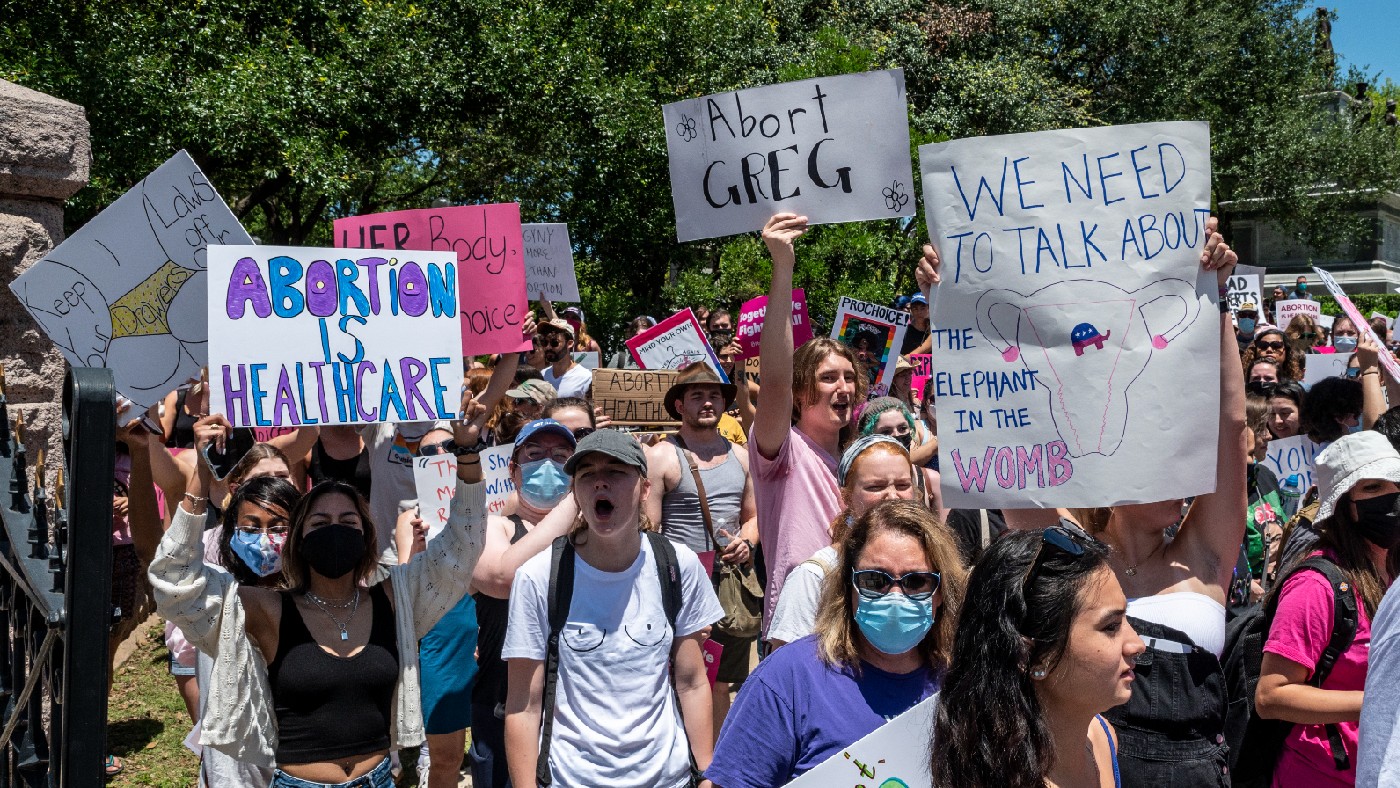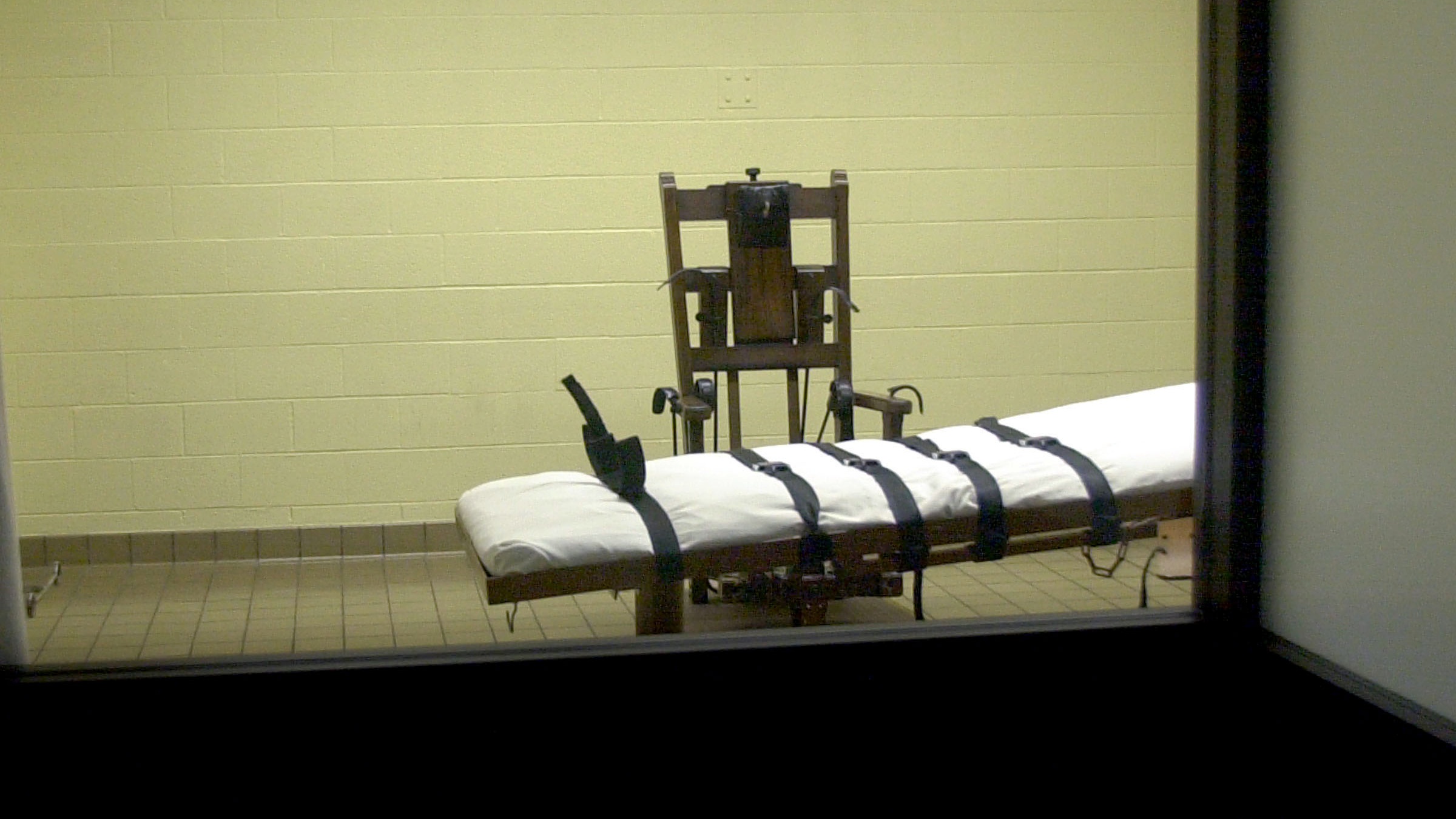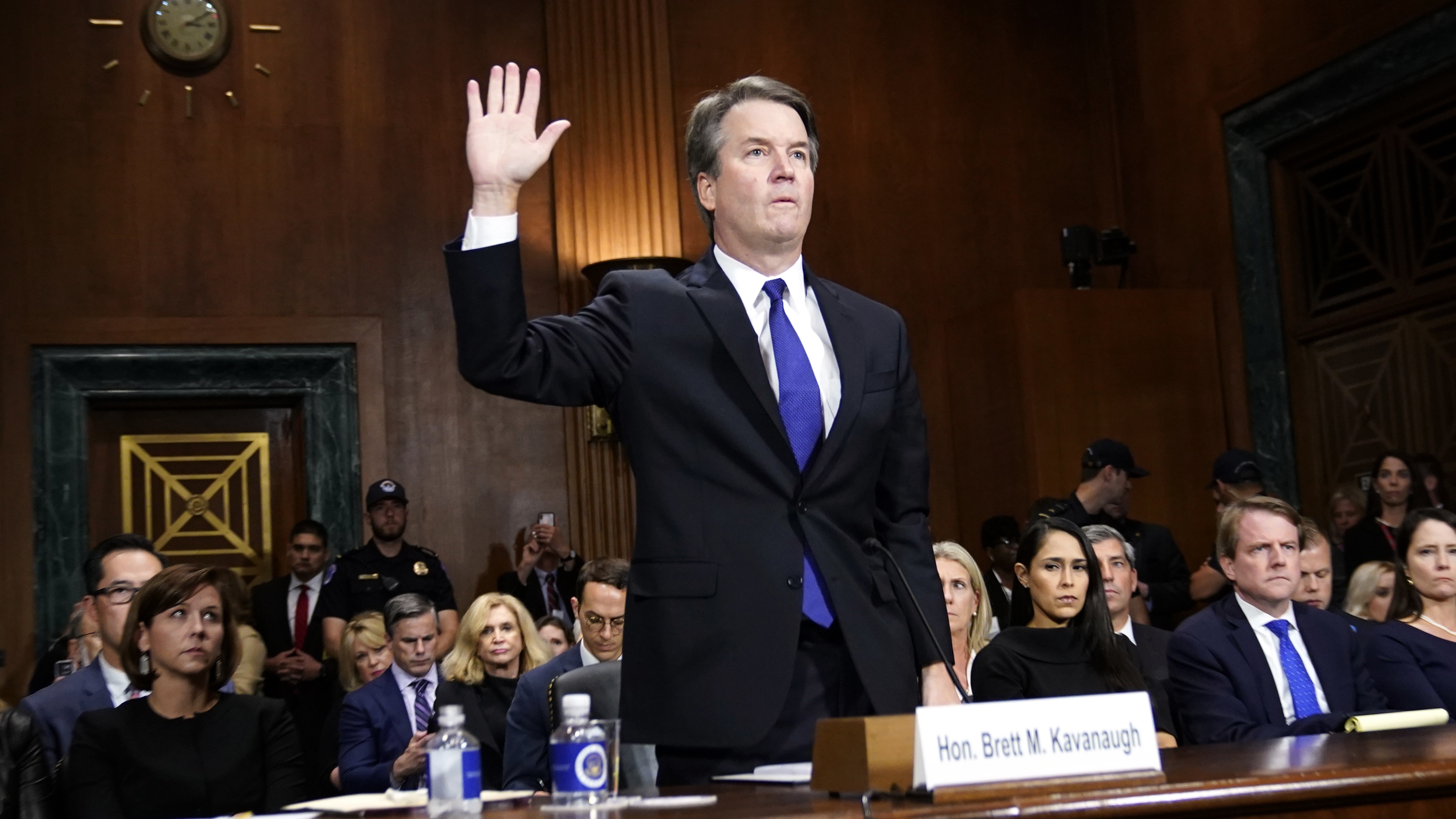What is Lucy’s Law?
Pet shops and dealers in England to be banned from selling puppies and kittens

A free daily email with the biggest news stories of the day – and the best features from TheWeek.com
You are now subscribed
Your newsletter sign-up was successful
Pet shops and dealers in England are to be banned from selling puppies and kittens under new legislation known as Lucy’s Law which aims to end so-called puppy farming.
The plans, which have gone out to consultation, will mean those wanting to buy or adopt a pet younger than six months old will have to go to the breeder or a rescue centre.
It follows a ban on licensed sellers dealing in dogs and cats younger than eight weeks old, which comes into effect on 1 October.
The Week
Escape your echo chamber. Get the facts behind the news, plus analysis from multiple perspectives.

Sign up for The Week's Free Newsletters
From our morning news briefing to a weekly Good News Newsletter, get the best of The Week delivered directly to your inbox.
From our morning news briefing to a weekly Good News Newsletter, get the best of The Week delivered directly to your inbox.
Named after a Cavalier King Charles Spaniel who was badly treated in the puppy farming system, Lucy’s Law “aims to reduce the health problems which emerge when animals are reared in poor conditions” says the BBC.
There have also been calls for similar legislation to be adopted in Wales and Northern Ireland, while Scotland introduced its own members bill to end puppy farming in May.
In a speech at Downing Street, Environment Secretary Michael Gove heaped praise on the campaign that highlighted how some sellers rely on puppies supplied by callous commercial breeders who raise animals in horrendous conditions.
He also name-checked the Daily Mirror newspaper, which has been a strong supporter of the ban.
A free daily email with the biggest news stories of the day – and the best features from TheWeek.com
As part of its animal welfare reform programme, the government is also bringing in higher maximum sentences of up to five years for animal abusers, “the toughest sentencing in Europe”, says the Nottinghamshire Post.
Animal charity Blue Cross estimates that between 40,000 and 80,000 puppies were sold via third parties in Britain last year, despite fewer than 100 licensed third-party sellers currently operating in England.
Chris Wainwright, deputy chief executive of the RSPCA, told BBC News that a ban was “overdue” and said he hoped it would raise welfare standards.
“We've had this explosion in this market with loads of rogue traders, lots of rogue dealers and it's meant the public are often unsuspecting. They think they're buying from a reputable breeder, actually they're buying from a middle person,” he said. “It means the breeders aren't getting the scrutiny on their premises because they're passing these dogs off to third parties and it often leaves families with sick animals and the tragedy of that occurs.”
However, while welcoming the ban, Paula Boyden, from the Dogs Trust, also warned “potential loopholes” needed to be closed off for the ban to be successful. She said there should be additional measures, including regulating re-homing organisations.
-
 Political cartoons for February 15
Political cartoons for February 15Cartoons Sunday's political cartoons include political ventriloquism, Europe in the middle, and more
-
 The broken water companies failing England and Wales
The broken water companies failing England and WalesExplainer With rising bills, deteriorating river health and a lack of investment, regulators face an uphill battle to stabilise the industry
-
 A thrilling foodie city in northern Japan
A thrilling foodie city in northern JapanThe Week Recommends The food scene here is ‘unspoilt’ and ‘fun’
-
 Texas’s abortion law: the Republicans get their way, at last
Texas’s abortion law: the Republicans get their way, at lastSpeed Read SB8 authorises private citizens to sue anyone who performs, ‘aids or abets’ an abortion after six weeks of pregnancy
-
 Changing legal gender: what’s new and how does it work?
Changing legal gender: what’s new and how does it work?Speed Read Cost of a gender recognition certificate application is reduced from £140 to £5
-
 America’s bloodiest state votes to ban the death penalty
America’s bloodiest state votes to ban the death penaltySpeed Read Virginia has executed more than 1,300 people in its 400-year history
-
 FBI accused of ‘fake’ background check on Donald Trump Supreme Court nominee
FBI accused of ‘fake’ background check on Donald Trump Supreme Court nomineeSpeed Read Democratic senator calls for ‘proper oversight’ over Brett Kavanaugh investigation into sexual assault claims
-
 Family of Malcolm X claims letter proves FBI and NYPD involved in his murder
Family of Malcolm X claims letter proves FBI and NYPD involved in his murderSpeed Read Daughters of assassinated civil rights leader demand reopening of investigation
-
 Meghan Markle granted nine-month delay in Mail on Sunday privacy case
Meghan Markle granted nine-month delay in Mail on Sunday privacy caseSpeed Read Duchess of Sussex had applied for summary judgement in battle over letters sent to her estranged father
-
 Meghan Markle to pay £67,000 after losing first round of legal battle against Mail
Meghan Markle to pay £67,000 after losing first round of legal battle against MailSpeed Read Duchess of Sussex is suing the newspaper’s publisher for printing parts of private letter to her father
-
 MI6 agents tried to stop judge seeing secret documents in ‘licence to kill’ case
MI6 agents tried to stop judge seeing secret documents in ‘licence to kill’ caseSpeed Read Intelligence agency was forced to apologise for ‘any misunderstanding’, court documents show